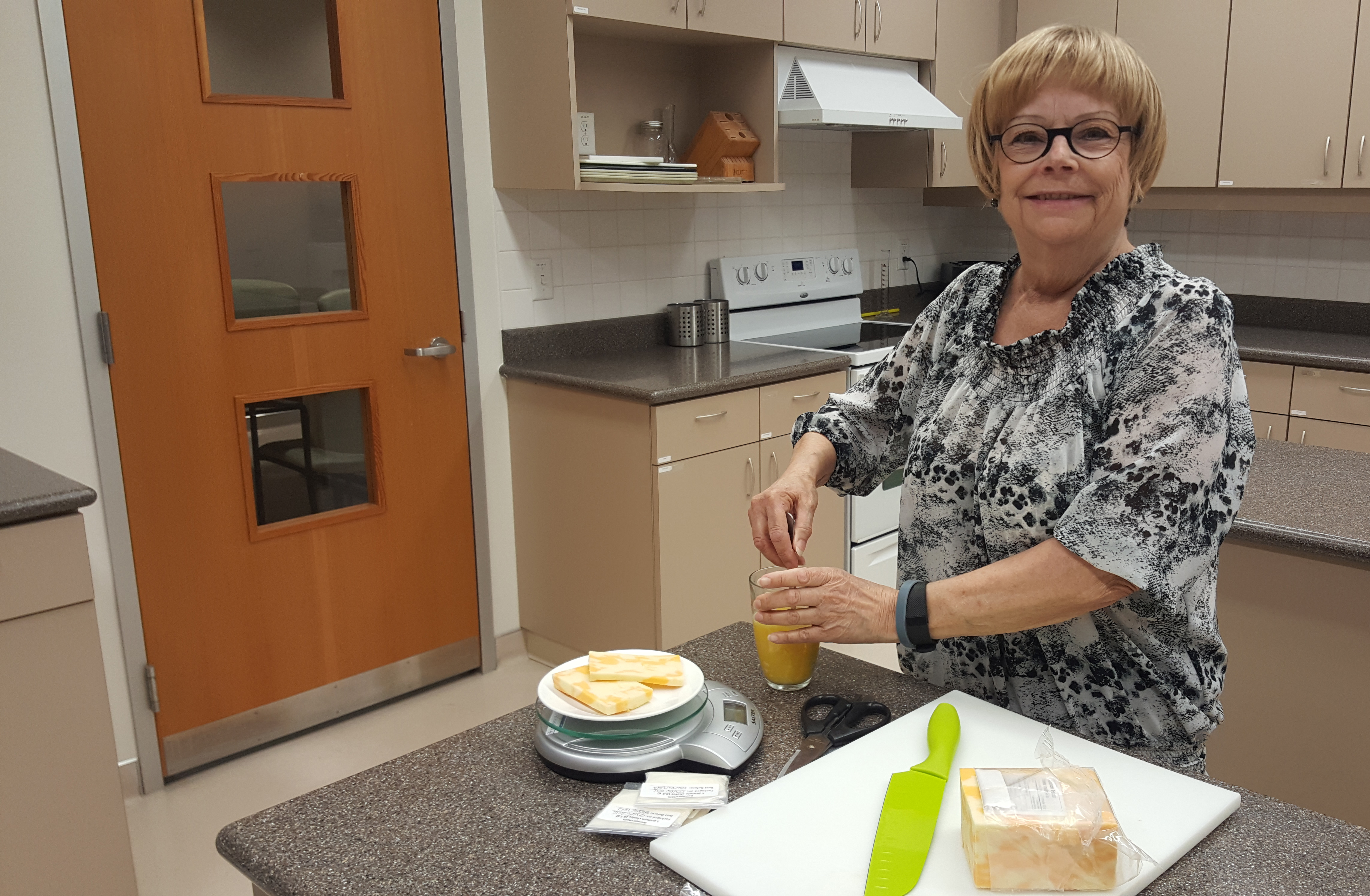
Charlotte Povey saw her energy and strength improve dramatically just three weeks into following PRIMe's recommendations to consume more high-protein foods.
You've just been diagnosed with cancer. There is lots on your mind, and probably none of it is, "Gee, I should volunteer for a research project."
But if you have mid-or late-stage colorectal cancer, joining the PRIMe study at the University of Alberta might be one of the best things you can do for yourself.
"With colorectal cancer, on average 50 per cent of people become muscle depleted," said Carla Prado, director of the Human Nutrition Research Unit at the University of Alberta and leader of the study. "We now know that this muscle loss leads to worse health for the patient; they have severe toxicity to chemotherapy or radiation treatments. If they are hospitalized they stay for longer periods of time, and the cancer can recur."
More bluntly, "losing muscle leads to shorter survival time," she said.
With the PRIMe study (Protein Recommendations to Increase Muscle), Prado and her team are adding high-protein foods to patients' diets to see if they can reverse the muscle loss, and also to determine what impact that has on cancer patients' health.
However, Prado needs more volunteers with colorectal cancer who are willing to eat either one or two grams of high-protein foods per kilogram of body weight, for a 12-week stint.
For a person who weighs 80 kilograms (175 pounds) and is assigned the two-gram per kg group, that would be approximately 510 grams (18 oz) per day of foods such as lean meat, fish, cheeses or eggs.
Charlotte Povey, 67, who was diagnosed with colorectal cancer last November, began chemotherapy in January and after her first round "felt horrible, with a deathly weakness; it was hard to do anything."
After a slight adjustment to the chemo dose, she started the PRIMe diet, eating 12 oz per day of protein rich food, about twice as much as the petite woman was accustomed to consuming.
Within three weeks, she felt strong and energetic-almost better, she says, than before she had cancer. "If you think about it, your body is fighting something, so it needs a little help."
Now she sings the praises of a high-protein diet to every cancer patient she meets, and is continuing to adhere closely to the diet even though her participation in the study has concluded.
Despite such anecdotal enthusiasm, it is challenging recruiting cancer patients, said Prado. They have other priorities, and media reports have also led many of us to be wary of eating meat, she said.
Processed meat, high-fat and high-salt products are not recommended as part of this diet, stressed Prado.
The study offers participants a highly personalized diet plan with well-balanced recommendations for lean meats, low-fat dairy products, eggs, fish and plant-based proteins such as hummus, beans and tofu. The plan provides an appropriate amount of energy (calories) for each person and encourages healthy choices for all food groups. There are also built-in conveniences. Participants receive frozen cooked lean meat and pre-measured portions of protein powders (donated by food companies supportive of the study).
"They have very close supervision by a dietitian, and three full-time staff absolutely committed to tracking what they are eating, who call them on a weekly basis," said Prado.
"We are also using sophisticated techniques that no one else in the world is using to measure them," she said, referring to the unit's state-of-the-art equipment for measuring muscle mass and caloric needs.
These include a whole body calorimetry unit (the only operating one in Canada), which measures resting metabolic rate; a Bod Pod that measures body composition while patients are seated; and a dual X-ray machine that scans the body to measure its lean tissue and fat mass.
Increasing protein intake was daunting only briefly, said Povey, who manages to get a third of her recommended servings into the first meal of her day-using open-faced breakfast sandwiches, peanut butter and, when needed, protein powder.
To participate in the PRIMe study, patients must be recently diagnosed with Stage 2, 3 or 4 colorectal cancer at the Cross Cancer Institute, be between 45 and 85 years of age, and able to communicate in English.
For more information, see PRIMe Study.